Posté par Sarah Feron, le 23 octobre 2014;
- Date et lieu de la conférence : 05/11/2014 - 18h - INHA, Salle Walter Benjamin
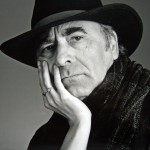
Conférence de Serge Guilbaut, à l’initiative de Perspective. La revue de l’INHA dans le cadre du numéro en préparation sur l’histoire de l’art aux États-Unis.
5 novembre 2014 – 18h Galerie Colbert salle Walter Benjamin Institut national d’histoire de l’art entrée libre
Accès : 6 rue des Petits-Champs ou 2, rue Vivienne 75002 Paris
« Je ne suis pas contre les musées ; je ne m’oppose pas au concept en tant que tel, et certainement pas à l’idée du musée comme espace démocratique où des histoires culturelles sont présentées et débattues, et où la mémoire et l’histoire dialoguent afin de ne pas succomber au mythe d’une culture unique et transcendante. Non, je m’insurge contre l’instrumentalisation du concept de . . . → En lire plus
Posté par Sébastien Bontemps, le 8 juin 2014;
- Date et lieu : 18 juin 2014, Auditorium du Musée du Louvre
Autour du Louvre Abu Dhabi : pour une histoire globale de l’art ?
Journée-débat« Musée-musées »
Auditorium du Louvre
Mercredi 18 juin de 10h à 18h
Peut-on et comment penser une histoire globale de l’art ?
En faisant appel à différentes disciplines (philosophie, histoire, histoire de l’art) et en réunissant certains des grands penseurs de la globalisation culturelle, cette journée propose d’aborder les enjeux méthodologiques que soulève une pensée à échelle mondiale de l’histoire de l’art et de l’institution muséale.
Elle propose aussi une mise en perspective du projet du Louvre Abu Dhabi qui fonde son discours et sa muséographie sur le décloisonnement des départements patrimoniaux et la mise en regard d’œuvres d’origines culturelles et géographiques diverses.
–10h : Ouverture
Par Jean-Luc Martinez, président directeur du musée du Louvre
. . . → En lire plus
Posté par Sébastien Bontemps, le 4 mai 2014;
- Date et lieu : 3 juin 2014, Paris, INHA, Galerie Colbert, Salle Démargne
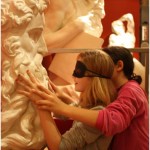 Journée d’étude « La médiation dans les Musées » : perspectives internationales 03 Juin 2014 – Salle Démargne, Galerie Colbert, Paris Journée d’étude « La médiation dans les Musées » : perspectives internationales 03 Juin 2014 – Salle Démargne, Galerie Colbert, Paris
Organisée par : Andrea Delaplace, doctorante en Histoire de l’Art, Université Paris 1 Panthéon-Sorbonne
9h45 – Accueil des participants
10h00 – Ouverture & Introduction de la Journée : Claire Merleau-Ponty, chargée de cours en muséologie à l’Ecole du Louvre
10 h30 – MuseoTorino: le visiteur réel, le visiteur virtuel – Irene Innocente, historienne de l’art et médiatrice indépendante
11h00 – Prière de Toucher – Alessandra Frontini, Master 2 en Muséologie à l’Université de Liège, chargée de projet au Musée Tactile Homère.
11h30 – Alternanza Scuola Lavoro : et si l’écolier travaillait au musée ? – Chiara Manente, Master . . . → En lire plus
Posté par Sébastien Bontemps, le 8 février 2014;
- Date limite : 174 février 2014
- Date et lieu : 12-13 septembre 2014, Londres, Wallace Collection
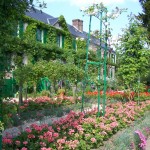 Houses as Museums/Museums as Houses (London, 12-13 Sep 14) Houses as Museums/Museums as Houses (London, 12-13 Sep 14)
Wallace Collection, London, September 12 – 13, 2014 Deadline: Feb 17, 2014
Houses as Museums/Museums as Houses
The relationship between museums and domestic spaces is a long and complex one. Museums were born in the houses of collectors, while the reconstruction of the house or domestic room – of ‘home’, effectively – continues to be an influential if controversial model for museum display. On the other hand, museums have at times invested heavily in the idea of their spaces as public, scientific and definitively non-domestic. The line between house and museum is therefore also one between public and private, scientific and domestic; and house-museums/museum-houses have acted both to confirm, to alter, . . . → En lire plus
Posté par Sébastien Bontemps, le 26 février 2013;
- Date et lieu de la journée d'étude : 8 mars 2013, Université Lille 3, Bâtiment B, Amphithéâtre G, 9h30-18h00
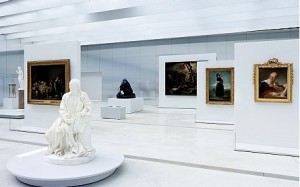 La Naissance du Louvre-Lens La Naissance du Louvre-Lens
Nouveaux enjeux et perspectives de développement des musées de la région Nord-Pas de Calais
Journée d’études organisée par Chang Ming PENG, IRHiS (Institut de Recherches Historiques du Septentrion, UMR 8529 –CNRS- Université Lille 3) et UFR des Sciences historiques, artistiques et politiques
Amphithéâtre G, bâtiment B, université de Lille 3
Inscription gratuite auprès de irhis.recherche@univ-lille3.fr
Programme
8 mars 2013
Journée d’études organisée par Chang Ming PENG, IRHiS (Institut de Recherches Historiques du Septentrion, UMR 8529 –CNRS- Université Lille 3) et UFR des Sciences historiques, artistiques et politiques
Amphithéâtre G, bâtiment B, université de Lille 3
9 H 30 – 12 H 30 . . . → En lire plus
Posté par Laëtitia Pierre, le 11 novembre 2012;
- Date de remise des textes : 15 decembre 2012
 Art History Supplement (AHS) (Online edition: ISSN 2046-9225) publishes bimonthly material, dealing with all time periods, methodologies, techniques and debates within the board field of Art History. Further, the general themes intended to be covered in each volume could be history of art history, history of conservation, history of museology, history of painting, history of sculpture and history of architecture. Contributions from any other science (social or not) corresponding to material culture are also welcome. The themes to be discussed under Histories of art history may include, but are not limited to : Art History Supplement (AHS) (Online edition: ISSN 2046-9225) publishes bimonthly material, dealing with all time periods, methodologies, techniques and debates within the board field of Art History. Further, the general themes intended to be covered in each volume could be history of art history, history of conservation, history of museology, history of painting, history of sculpture and history of architecture. Contributions from any other science (social or not) corresponding to material culture are also welcome. The themes to be discussed under Histories of art history may include, but are not limited to :
Teaching western art history to non-western students, Teaching non-western art history to western students, Western art historians, and . . . → En lire plus
Posté par Pascale Dubus, le 30 mai 2012;
- Date et lieu du colloque : Samedi 17 novembre 2012, Londres, The Courtauld Institute of Art.
- Date limite : 1er juillet 2012
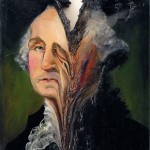 Art and Its Afterlives aims to address the ways in which the work of art continues to resonate after its creation. While much art history takes as its focus the initial facture of the work of art, this one-day symposium explores what happens to early modern art after the moment of its making. How did early modern works continue to be created in their display, preservation, and reception from the moment of their creation on? Papers will examine how art is shaped by its afterlives – whether these collect, curate, cut up, cut out, copy or correct it – and the ways in which art both persists and changes through time as a material . . . → En lire plus Art and Its Afterlives aims to address the ways in which the work of art continues to resonate after its creation. While much art history takes as its focus the initial facture of the work of art, this one-day symposium explores what happens to early modern art after the moment of its making. How did early modern works continue to be created in their display, preservation, and reception from the moment of their creation on? Papers will examine how art is shaped by its afterlives – whether these collect, curate, cut up, cut out, copy or correct it – and the ways in which art both persists and changes through time as a material . . . → En lire plus
Posté par Benjamin Barbier, le 4 mai 2012;
- Date et lieu du colloque : 21-23 juin 2012, Archives nationales (Pierrefitte) – Université Paris 8.
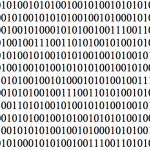 Colloque international Patrimoines et humanités numériques : quelles formations ? Les 21, 22 et 23 juin 2012 Colloque international Patrimoines et humanités numériques : quelles formations ? Les 21, 22 et 23 juin 2012
La formation au patrimoine a été longtemps articulée aux définitions du patrimoine qui se sont succédé : musées au service de l’instruction publique pour la formation du citoyen, de l’artiste ou du scientifique après la Révolution (la création de l’Ecole du Louvre en 1882 pour former «les conservateurs, les missionnaires et les fouilleurs » s’inscrit dans ce cadre), souci d’élaborer une histoire nationale (création de l’Ecole des Chartes en 1821, de l’Inspection des monuments historiques en 1830), prise en compte du patrimoine naturel dès 1906 (création de l’Ecole nationale d’horticulture en 1945 remplacée en 1976 par l’actuelle . . . → En lire plus
|
Équipe Rédacteur en chef : Olivier Bonfait.
Rédacteurs : Elliot Adam (Moyen Age) ; Nicolas Ballet (XX-XXIe siècles) ; Matthieu Fantoni (musées) ; Antonella Fenech Kroke (bourses) ; Vladimir Nestorov (Lettre mensuelle)
Administrateur web : Matthieu Lett.
ancien éditeur : Pascale Dubus
anciens rédacteurs : Gautier Anceau, Sébastien Bontemps, Damien Bril ; Sébastien Chauffour ; Ludovic Jouvet ; Aude Prigot
|







